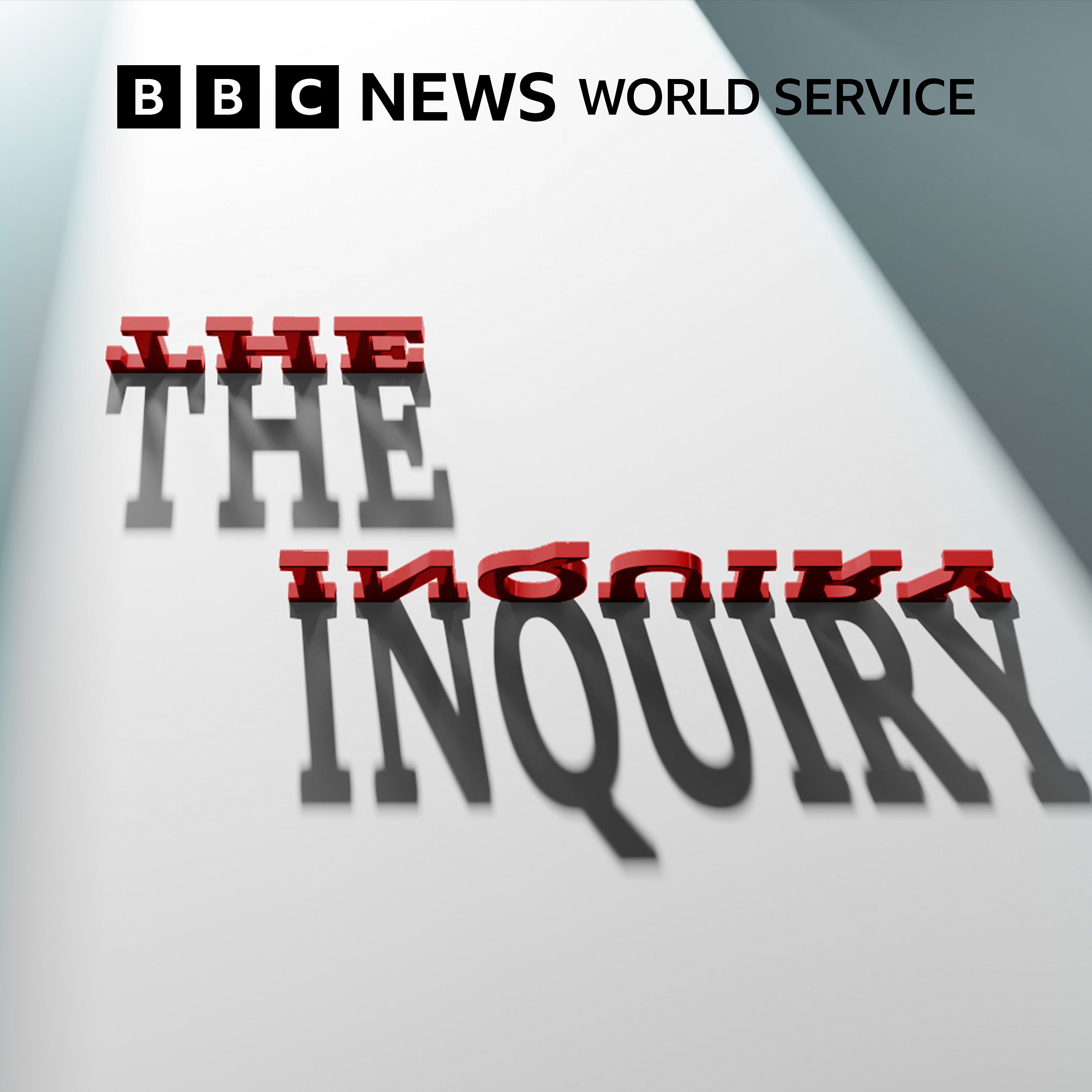

The Inquiry
BBC World Service
The Inquiry gets beyond the headlines to explore the trends, forces and ideas shaping the world.
Episodes
Mentioned books

Oct 15, 2024 • 23min
What’s the succession plan for Murdoch’s empire?
Walter Marsh, a journalist and author of "Young Rupert: The Making of the Murdoch Empire," joins David Folkenflik, NPR's media correspondent and author of "Murdoch’s World," along with legal expert Reid Weisbord and economist Alice Enders. They delve into the intense family dynamics shaping the succession of Rupert Murdoch's media empire. Topics include the legal battles among Murdoch's children, Lachlan's potential dominance, and the impact of these conflicts on the future of media ownership and influence. Intrigue surrounds who might truly inherit this colossal legacy.

Oct 9, 2024 • 23min
Can anyone broker peace in the Middle East?
In this discussion, Hugh Lovatt, an expert on Middle East politics, joins Bilal Y Saab, Christopher Phillips, and Burcu Ozcelik to delve into the ongoing violence in the region and the complexities of peace negotiations. They explore the historical dynamics of the Israeli-Palestinian conflict, the shifting role of international players, and the diminished influence of the U.S. as new actors like Saudi Arabia emerge. The conversation raises critical questions about who can successfully broker peace and what frameworks might be viable amidst escalating tensions.

8 snips
Sep 30, 2024 • 23min
Can Greece fix its overtourism problem?
Greece's Tourism Minister, Olga Kefalogianni, discusses innovative strategies to tackle overtourism. She reveals plans for cruise ship fees in hotspots like Mykonos and Santorini to mitigate environmental pressures. The conversation highlights a post-pandemic tourism boom and the need for sustainable solutions to balance economic benefits with local community welfare. Kefalogianni also explores ways to entice tourists away from overcrowded attractions, emphasizing the importance of promoting lesser-known destinations.

13 snips
Sep 24, 2024 • 23min
How are the Taliban governing Afghanistan?
The podcast dives into the Taliban's strict enforcement of morality laws, especially targeting women's rights, amidst a deepening humanitarian crisis. It discusses the historical rise of the Taliban and their centralized control over Afghanistan, leading to severe public service impacts. The show highlights the harsh realities under their rule, including rising unemployment and the international community's diplomatic dilemmas as they navigate relations with unrecognized governance. The precarious situation of women, in particular, shows the complex interplay of rights, economics, and global response.

Sep 16, 2024 • 23min
Can Germany’s far right win the country?
Germany's far-right party, Alternative for Germany (AfD), is making waves with its recent electoral victories, raising questions about its impact on the nation's political landscape. The podcast dives into the party's ambiguous stances on issues like immigration and the Ukraine war, revealing a potential normalization of radical views. It also reflects on historical perspectives of immigration in Germany, tracking changes from guest worker programs to current sentiments. As mainstream parties strategize to counter the AfD's influence, the debate on political legitimacy and voter trust heats up.

13 snips
Sep 10, 2024 • 23min
Can we trust Google?
A recent court ruling highlights Google's legal battles over its monopolistic practices, raising questions about trust. The fascinating journey of Google from a small startup to a dominant search engine sheds light on their ethical challenges. Experts discuss the implications of antitrust laws, the company's advertising tactics, and the complexities of its search algorithms. The ethics of personalized results and the need for regulation are also debated, emphasizing the crucial impact of tech giants on information access.

Aug 27, 2024 • 23min
What does Hezbollah want?
The podcast dives into Hezbollah's dual identity as a military and political force in Lebanon. It explores how recent military escalations along the Israel-Lebanon border are influenced by the Gaza conflict. The relationship between Hezbollah and Palestinian dynamics is examined, emphasizing their mutual support and strategic ties. Additionally, the interaction between Hezbollah and Hamas is discussed, highlighting their opposition to Israel. Finally, the podcast analyzes Hezbollah's military objectives and its geopolitical connections, particularly with Iran.

10 snips
Aug 20, 2024 • 23min
Is Pope Francis ‘betraying’ China’s Catholics?
Explore the secretive 2018 Provisional Agreement between the Vatican and China, impacting 13 million Catholics. Delve into the historical ties and political negotiations influencing the church's split between state-sanctioned and underground factions. Understand the feelings of betrayal among many Catholics regarding papal diplomacy with the Communist Party. The discussion raises critical questions about religious freedom, the complexities of Vatican-China relations, and the future of Catholicism in a rapidly changing political landscape.

6 snips
Aug 9, 2024 • 23min
How might Project 2025 shape the future of the US?
The discussion centers on Project 2025, a blueprint created by the Heritage Foundation for the next conservative president. It examines its roots in Reagan's legacy and the polarizing views around its push for greater presidential power. Concerns are raised about potential authoritarian governance and risks to democracy. The podcast also explores the implications for U.S. energy policy, focusing on fossil fuels, and critiques extreme policy suggestions. Ultimately, it highlights how this initiative could reshape the upcoming presidential election and governance in America.

Aug 7, 2024 • 23min
Can Canada overcome its drug overdose crisis?
Canada grapples with a severe drug overdose crisis fueled by the rise of synthetic opioids. The pilot program for drug decriminalization in British Columbia faced challenges and has now been scaled back. Vancouver's innovative harm reduction strategies aim to combat the stigma and public health implications of addiction. Comparisons are drawn with Estonia's historical drug crisis, emphasizing the need for compassionate responses. Ultimately, the discussion champions a human rights-based approach to drug policy and the importance of treating addiction as a health issue.


